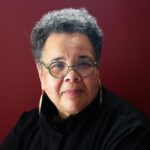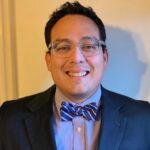introductory
Syllabi - Program: introductory - 49 results
Select an item by clicking its checkboxA course by Mary Suydam at Kenyon College that explores the history and interpretations of the Hebrew Bible.
A fall 2007 course by Rhonda Burnette-Bletsch studies "the diverse writings of the OT or Tanakh as literary products of their original social and historical contexts" with attention to how "later communities appropriated these texts for new situations."
A 2012 course by Shannon Craigo-Snell and Kathryn Johnson at Louisville Presbyterian Theological Seminary that introduces seminary students to theology and ethics.
A course by Peter Harle at the University of Minnesota introduces "students to the study of religion, using food as an entry point."
A 2009 course by Andrew Aghapour at the College of Charleston "designed to provide a brief introduction to major religious traditions, including Hinduism, Confucianism, Daosim, Judaism, Christianity, and Islam."
A 2012 course by Dan Hinman-Smith at North Island College is "an introduction to the world's major religions, with an emphasis upon those of the Abrahamic tradition: Judaism, Christianity and Islam."
A 2018 course by Harold Morales surveys "the dynamic and influential world religions of Hinduism, Buddhism, Judaism, Christianity, and Islam."
A 2017 course by Aaron Ricker at McGill University surveys "key examples of biblical tradition, and critical discussions of their place in Western culture."
A course by Christopher Johnson "introduces students to a number of ways to approach the academic study of religion along with seven major religious traditions (Islam, Christianity, Confucianism, Hinduism, Buddhism, Judaism, and Daoism)."
A 2014 course by Benjamin Wall at Houston Graduate School of Theology on various "ethical systems and theories in light of biblical and traditional Christian perspectives and moral norms, with reflection upon several contemporary social issues."
A 2014 course by Stuart Squires at Brescia University surveys "the theological developments and controversies that have shaped Christian thought from the fourth to the twenty-first centuries" through lens of how doctrine has developed within Roman Catholicism.
A 2013 course by Gwendolyn Simmons at the University of Florida "designed to give the student a coherent, interdisciplinary understanding of the African American religious experience from the beginning of the African sojourn here in North America until the present."
A 2012-13 course by Kasia Szpakowska Swansea University, Wales, UK provides "an overview of Ancient Egyptian religious beliefs and practices."
A 2014 course by Bruce Baugus at Reformed Theological Seminary "concerns the theological basis of interpreting the Bible . . . (and) the exegetical method."
A 2011 course by Michael Zank at Boston University that provides an introduction to "Jewish and Christian scriptures."
A 2015 course by William H.C. Propp at UC San Diego on the origins of the Bible and its "influence on subsequent religions, philosophies, arts and social movements."
A 2015 course by Bryan Rennie at Westminster College that offers "a historical-critical introduction to the Bible as literature, as narrative, as philosophy, as history, as revelation, and as myth."
A 2017 course by Charles Cosgrove at Garrett-Evangelical Theological Seminary provides "a historical introduction to the writings of the New Testament."
A 2007 course by Jane Webster at Barton College approaches the New Testament through "reading, writing, films, and class discussion."
A 1995 course by Ivan Strenski at the University of California-Riverside introduces the history and beliefs of Buddhist traditions.
A 2001 course by James Dalton at Siena College "concerns the history, development and structure of the religious traditions of Buddhism."
A 2012 course by Christoph Emmrich at the University of Toronto Mississauga "designed to introduce students to Buddhism and Buddhists in Asia."
A 2000 course by Daniel Sack at Hope College situates "contemporary Christianity in its historical context."
A Fall 2007 course taught by Jonathan D. Lawrence at Canisius College
A 2013 course by Jack Hawley at Columbia University provides an overview of the basic concepts, practices, and places of Hinduism.
A course by Barbara von Schlegell at the University of Pennsylvania the origins, theology, practices, and traditions of Islam. Islam in America is treated as well.
A 2013 course by David Ariel-Joel at Louisville Presbyterian Theological Seminary that surveys "the dominant values and practices of what became traditional Judaism."
A course by Jeffrey Bjerken at the College of Charleston "is an introduction to the academic study of religion in general and a survey of different understandings of sacred place and pilgrimage found in America and India."
A 2016 course by Ken Derry at the University of Toronto provides a "basic introduction to the academic study of religion, using examples from contemporary popular culture as well as Indigenous and other religious traditions."
A 2011 course by Ann Burlein at Hofstra University which aims to describe, analyze, and raise questions about "religion" through the lens of Judaism, Christianity, and Islam.
A 2010 course by Seth Dowland at Duke University is a writing-intensive course that examines "the intersection of religion and popular culture."
A 2014 course by Joseph Adler at Kenyon College about the "various human phenomena that we call 'religious" and "the world's major religious traditions."
A 1999 course by Michael Fuller at St. Louis Community College examines "the nature and function of religion in human experience and culture, and an introduction to the history, content, and present status of selected world religions, such as Traditional African religions, Traditional Native American religions, Judaism, Christianity, Islam, and Buddhism."
A course by Jeffrey Richey at Berea College introduces "the East Asian spiritual heritage in China, Korea, and Japan (Confucian, Daoist, Buddhist, Shinto, folk, etc.) -- its past, as well as its present and future. We will also give some of our time to the consideration of Christianity as an East Asian religion, and to the situations of East Asian religions in North America."
A 2014 course by John Reeves at the University of North Carolina Charlotte "provides an overview of the diverse genres of literature contained within the Hebrew Bible as well as an introduction to its modern critical study."
A 2008 course by Michael Andres at Northwestern College "is an introduction to the historical, literary, and theological aspects of the Bible. We will survey the central characters and events of biblical history, examine the variety of genres found in the Bible, and discuss key theological themes emphasized within the Bible."
A 2010 course by Michael Andres at Northwestern College "is a study of the major concepts of Christian theology and their interrelationships."
A 2011 course by Mark Lewis Taylor at Princeton Theological Seminary is "more 'an introduction to the study of systematic theology,' and less a survey of the whole of systematic theology."
A 2010 course by Joel Kaminsky at Smith College focuses on "the content of the Hebrew Bible and the historical and cultural context in which it flourished will be the primary goal."
A 2008 course by Joseph Edelheit at St. Cloud State University "is an exposure to interdisciplinary tools of understanding Scripture, especially as the primary text of the Jewish people and Judaism."
A course by Catherine Wessinger at Loyola University New Orleans aims to "acquaint the student with the primary religious groups of the world in order to promote an awareness and understanding of the goals that have been of ultimate concern to various peoples as well as the methods used to achieve these goals."
A 1998 course by Martha Reineke at the University of Iowa introduces "the basic tenets of Judaism, learning something of its history and diverse practices" through a focus on exploring Judaism through the Internt.
A 2010 course by Kenneth Atkinson at the University of Northern Iowa introduces "to the history and ideas of the New Testament and other early Christian writings and the methods biblical scholars use to understand them. My goal is to provide you with the skills necessary to interpret the New Testament, and to help you evaluate the ways that people use this text."
A 2010 course by Kenneth Atkinson at the University of Northern Iowa introduces "the academic study of religion and the worldâs major religions. . . . not only study the good side of religion, but we will also explore together the origins of contemporary religious violence in order to help you understand the important role that faith continues to play in world conflicts."
A 2013 course by Lewis Brogdan at Louisville Presbyterian Theological Seminary "is a survey course designed (a) to introduce students to the basic matters of New Testament studies and (b) to lay a foundation for all advanced work in the area. With regard to each book of the New Testament, we will, as possible, think about the literary shape, social context, and theological concerns of the writing."
A 2012 course by Joel Kaminsky at Smith College "explores major Jewish texts, ideas and practices over a period of more than 3,000 years."
A 1998 course by Peter Haas at Vanderbilt University introduces the Bible, its study, and meanings.
A 2002 course by Richard Ascough at Queen's University "is designed to give an overview of the content and background of the twenty-seven documents that comprise the New Testament. Through these texts we will explore the historical development of early Christianity as it is expressed in the literature of the various faith communities."
A 2019 course by Madison Tarleton at the University of Denver/Illiff School of Theology introduces "students to the academic study of religion" through a survey of "early theorists and anthropologists as well as examine how these theories evolved over time."

